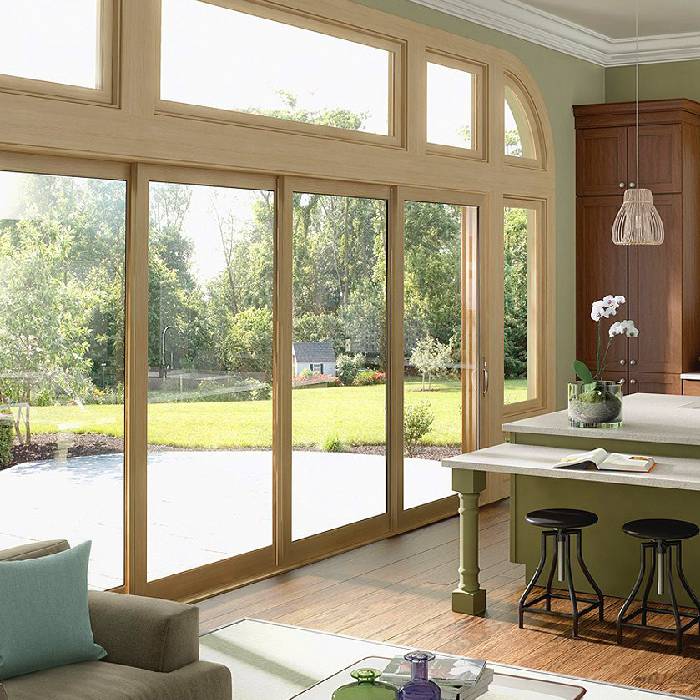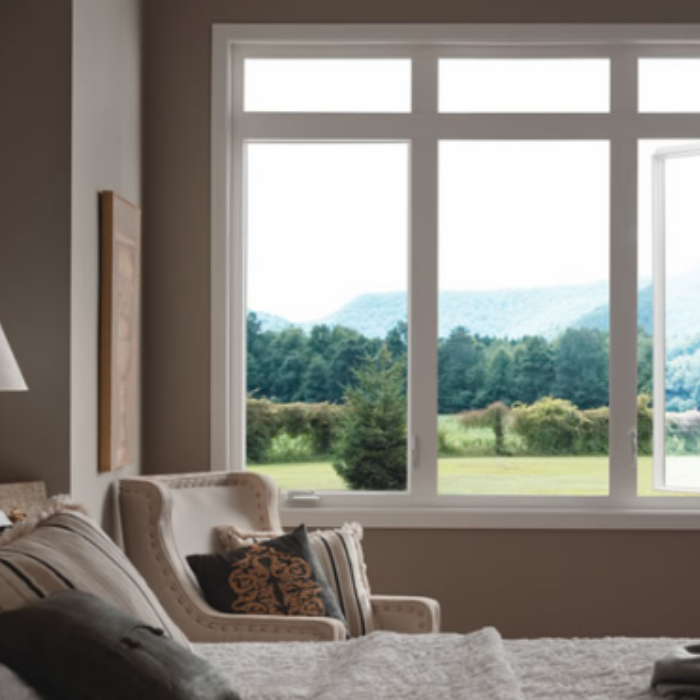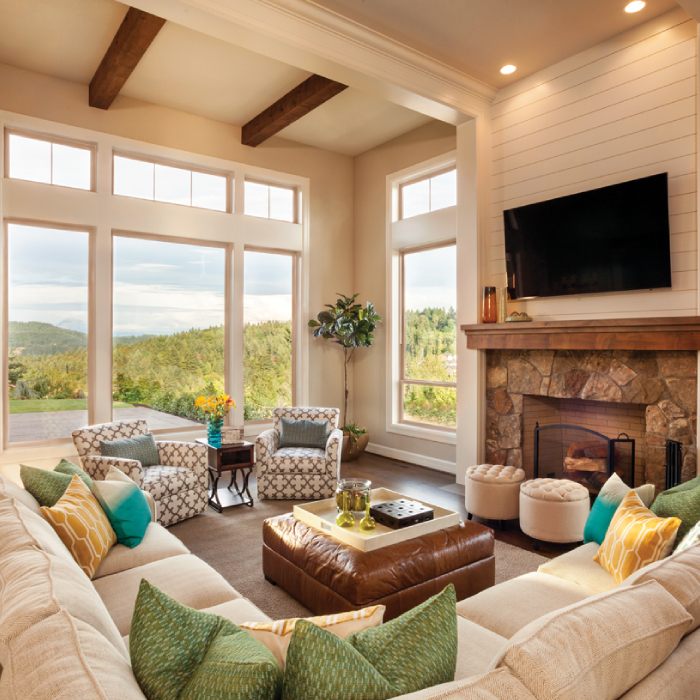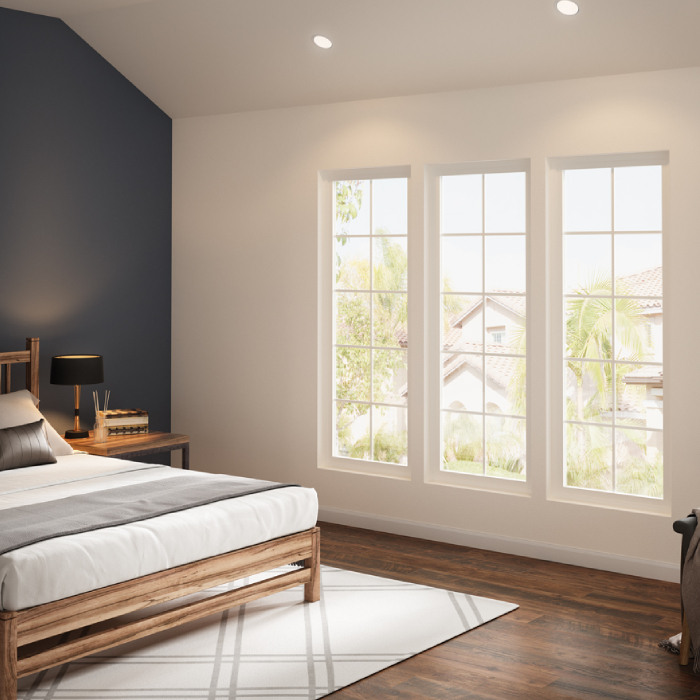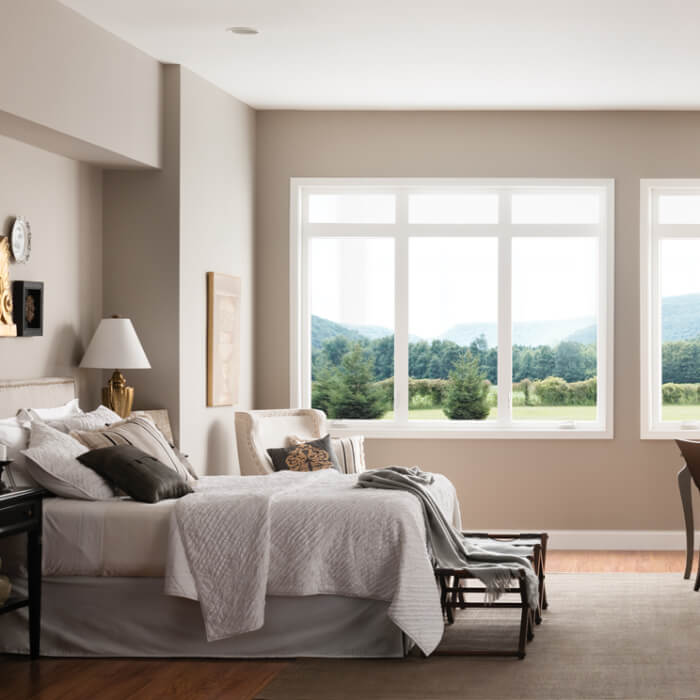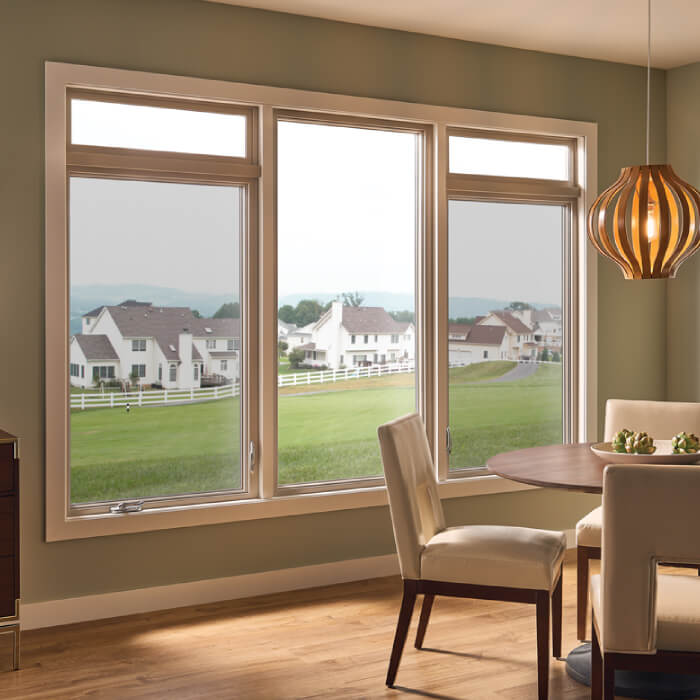Incorporating Feng Shui in Your Home Design Plans
Have you ever walked into someone’s home and felt an immediate sense of peace and tranquility? Chances are they may be practicing the ancient Chinese art of Feng Shui.
When it comes to decorating our homes, we often focus on choosing the right color scheme, furniture, and accessories. But did you know that the arrangement of these elements in our living space can also affect our mood, energy, and overall well-being?
If you have recently added new replacement windows or are considering them in the near future, you may be thinking about how best to decorate your space around them.
As we all know, windows play a crucial role in natural lighting and ventilation, but did you know that they also hold significance in Feng Shui? In fact, updating your space with replacement windows to help open the flow, a homeowner can invite positive energy (also known as chi) into their living space.
Here are some Feng Shui tips to make your home a more harmonious and peaceful place for you and all your guests.
What is Feng Shui?
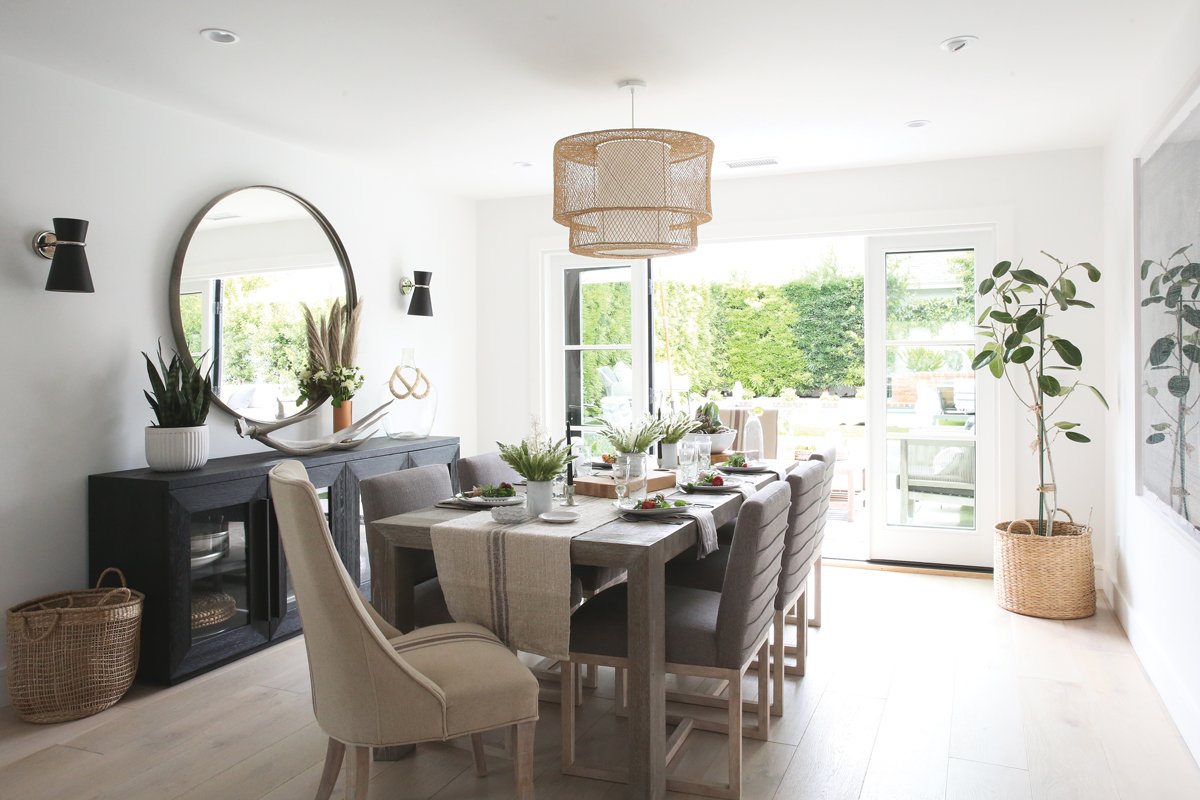
Feng Shui is an ancient Chinese practice that's become increasingly popular in Western cultures. The term translates to “wind and water,” and it's used to create harmony and balance in the home that involves arranging your physical surroundings in a way that promotes good energy, also known as “chi.”
Planning your home decor around your new windows can positively impact your overall living space and your home's energy flow.
Today, many people use Feng Shui in home design as it can enhance the overall ambiance of any space. Keep reading to discover the importance of incorporating Feng Shui principles.
Feng Shui Principles
1.) Qi Energy Flow
(气, pronounced “chee”, “cee”, or “tsee”)
The principle of Qi is at the heart of Feng Shui. It's the invisible energy that surrounds us and flows through everything, and according to Feng Shui, it's what brings harmony and prosperity into our homes.
The idea is to optimize the flow of Qi within your space so it circulates smoothly and doesn't stagnate. To do that, you want to make sure your home is well-ventilated and clutter-free and that there's no obstruction to the flow of air or light.
2.) Bagua Map
The Bagua Map is a tool used in Feng Shui to analyze the energy flow of your home. It's like a blueprint that identifies the different areas of your living space and assigns them to specific areas of life, such as health, wealth, and relationships.
Each area of the Bagua Map corresponds to a specific color, element, and shape that you can use to balance and enhance your home's energy. For instance, if you're looking to attract more prosperity into your life, you'll want to focus on the southeast corner of your home and incorporate more wood and green colors.
3.) Yin and Yang
Yin and Yang are two opposing forces that exist within everything, and the balance between them is what creates harmony. In Feng Shui, you want to achieve a balance of Yin and Yang energies within your home. Yin is associated with the feminine, dark, and passive qualities, while Yang is associated with the masculine, bright, and active qualities.
The trick is to recognize which elements of your home are more Yin or more Yang and then adjust accordingly. For example, adding dimmer lighting or cozy blankets can enhance the Yin energy of your space, while adding more bright colors or plants can bring in Yang energy.
4.) Five Elements
The Five Elements theory is another fundamental principle of Feng Shui. It identifies the elements of fire, earth, metal, water, and wood and how they interact with each other to create balance in your home.
Each element is associated with specific colors, shapes, and materials that you can use to balance and enhance the energy of your space. For instance, if your home lacks the water element, you can add a water feature or incorporate more blue colors to bring in the energy of flow and relaxation.
5.) Personal Intention
Last but not least, Feng Shui emphasizes the importance of your personal intention in creating harmony in your home. It's believed that your thoughts and emotions directly impact the energy of your environment.
Therefore, you're more likely to create a positive and harmonious living space if you're clear on what you want to achieve in your home and focus your thoughts and actions toward that goal.
The Importance of Balancing Elements

Feng Shui also emphasizes the importance of balancing the five elements – water, earth, fire, metal, and wood – to create a harmonious and peaceful space. Each element has its own unique characteristics, qualities, and associations, and they interact energetically in specific ways.
The Five Elements:
- Water – Water symbolizes the flow of energy and is associated with wealth and prosperity in Feng Shui. To introduce more water into your home, you can add a water feature such as a fountain or aquarium.
- Earth – Earth represents stability and grounding in Feng Shui. To incorporate more earth energy into your home, you can use earthy tones such as brown, beige, and green in your decor. You can also add plants or crystals to bring the energy of nature indoors.
- Fire – Fire represents passion, energy, and warmth in Feng Shui. To introduce more fire energy into your home, you can use colors such as red, orange, and yellow in your decor. You can also use candles or a fireplace to create warmth and intimacy.
- Metal – Metal represents clarity, precision, and focus in Feng Shui. To add more metal energy to your home, you can use metallic colors such as silver and gold in your decor. You can also incorporate metal objects such as mirrors or metallic accents in your furniture.
- Wood – Wood represents growth, vitality, and health in Feng Shui. To introduce more wood energy into your home, you can use natural wood furnishings or decor items. You can also add plants or fresh flowers to bring the energy of nature indoors.
Choosing The Right Window Treatment
How Can Window Treatments Enhance Feng Shui?
When choosing a window treatment for your home, consider the window treatment material carefully. Natural fibers and materials such as bamboo, cotton, and silk are great options for promoting positive energy flow, as they are believed to contain properties that promote healing and balance.
For example, if you have a room with strong, bold colors, selecting a neutral or calming window treatment can help balance the space and promote positive energy flow.
In Feng Shui, it's believed that certain windows can enhance different areas of your life. Windows facing the east are believed to promote energy flow for career success, while windows facing the south are believed to enhance enthusiasm and passion.
Choosing the right window treatment is important in creating a positive and energizing living space. Whether you prefer curtains, blinds, shades, drapes, or shutters, plenty of options suit your style and your feng shui needs.
By keeping in mind the principles of good energy flow and natural materials, you can create a home that promotes happiness, health, and vitality for you and your loved ones.
1.) Curtains
Curtains are a popular option for window treatments, and they come in a wide range of styles and colors to suit any room of your home. In feng shui, it’s important to choose curtains that are made of natural materials like cotton, silk, or linen to promote good energy flow.
Avoid synthetic materials or heavy, dark fabrics that can block chi from circulating freely through your living space.
2.) Blinds
Blinds are a versatile option that can be adjusted to control the light entering your home. They’re also a great choice for privacy, and they come in a variety of styles to match your decor.
Opt for natural materials like bamboo or wood for a more organic feel when choosing blinds. Avoid plastic or vinyl materials that can create a stagnant atmosphere and block the flow of chi.
3.) Shades
Window shades are a popular option for their simplicity and ease of use. They’re also a great choice for energy efficiency, as they can provide insulation and help regulate the temperature in your home.
When choosing shades, look for options that allow natural light to filter through while providing some privacy. Avoid heavy, opaque materials that can block the flow of energy and create a sense of disconnection from the outdoors.
4.) Drapes
Drapes can add a touch of elegance and sophistication to any room, but they can also be heavy and cumbersome.
When choosing drapes, look for light, flowing materials like silk or sheer cotton that allow light to flow through without blocking it. Avoid heavy, opaque fabrics that can create a sense of heaviness or pressure, which can detract from the overall flow of energy in your living space.
5.) Shutters
Shutters can add a touch of old-world charm to your home, and they’re a great choice for privacy and light control.
When choosing shutters, look for options that allow natural light to filter through while providing privacy and protection from the outdoors. Avoid too heavy or cumbersome shutters, as they can block the flow of energy and create a sense of being trapped within your own home.
YOU MAY ALSO ENJOY: 5 Energy Efficient Window Treatment Ideas
How Furniture Placement Can Impact Feng Shui
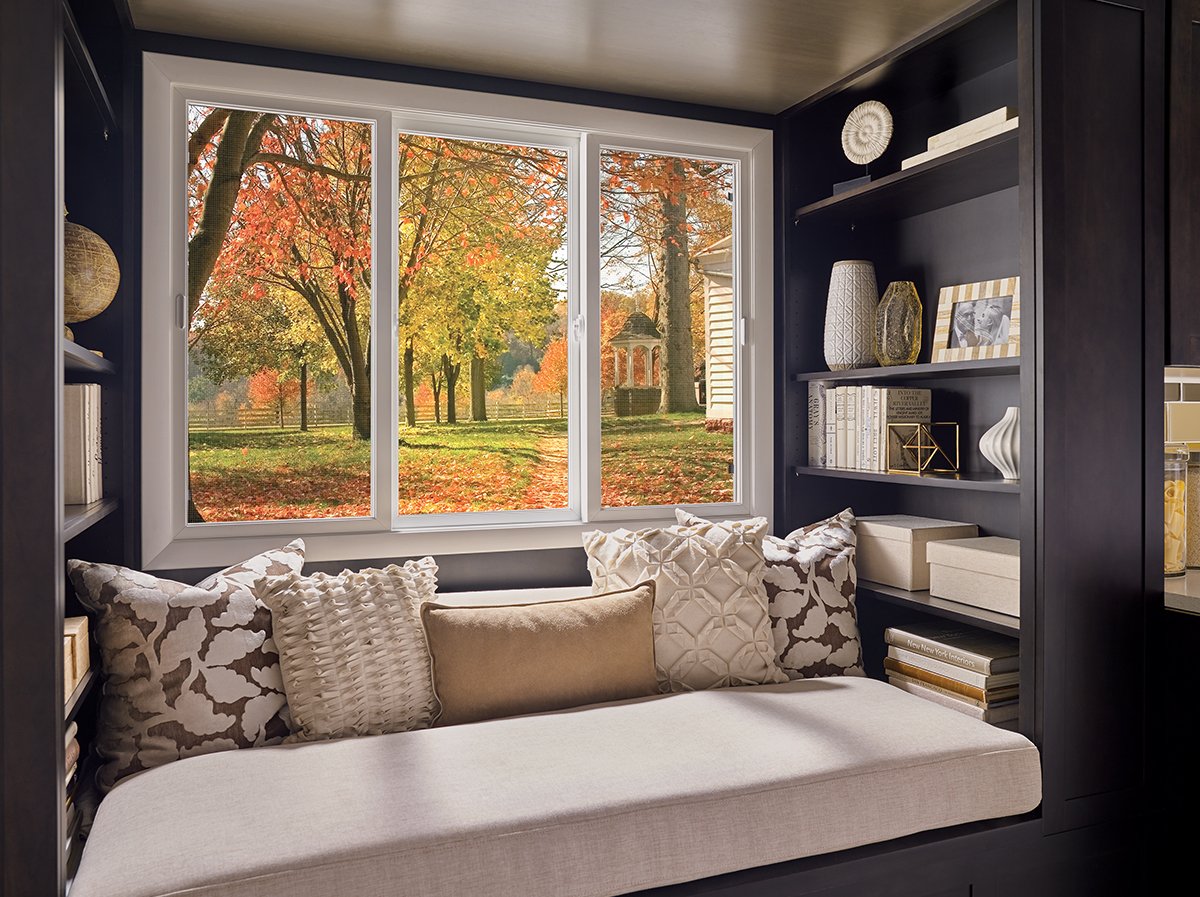
So, how does furniture placement impact Feng Shui?
The idea is that furniture can block or promote the flow of energy in your space. For example, a cluttered or cramped room can restrict the movement of chi and create stagnant energy.
On the other hand, a spacious and open area can allow energy to flow freely and create a peaceful atmosphere. When positioning your furniture, it's important to consider the function of the room, the flow of foot traffic, and the placement of windows and doors.
Windows play a significant role in Feng Shui as they allow natural light and fresh air to enter your space. The position of your furniture in relation to windows can impact the energy flow and the overall comfort of your home.
Here are some tips for furniture placement in relation to windows:
- Avoid placing furniture directly in front of a window as it can block natural light and create a sense of discomfort.
- Position your bed diagonally across from the window to promote good energy flow and give you a better view of the outside.
- Place a sofa or a chair against a solid wall rather than a window to create a sense of stability and security.
- Consider installing blinds or curtains to regulate the flow of light and energy in your space.
Maintaining Your Feng Shui Space
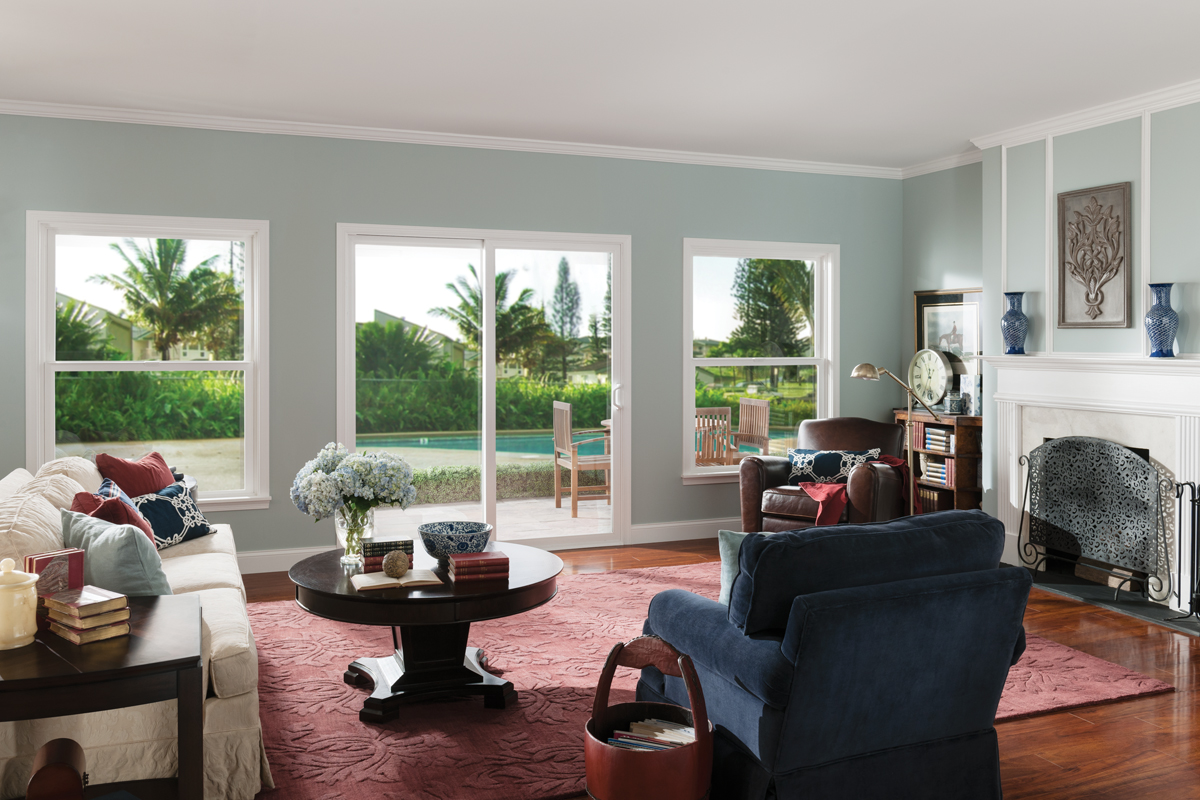
Your home is your sanctuary, the place where you should feel the most peaceful and joyful. However, sometimes it's hard to achieve that feeling of balance and harmony in your space.
First and foremost, your home is a reflection of your inner self. So, if your home is cluttered, chaotic, and messy, chances are your mind and emotions are in a similar state.
A well-organized, neat, and clean environment can help you feel calm, inspired, and motivated. Maintaining a balanced and harmonious space can decrease stress, anxiety, and other negative emotions.
Additionally, Feng Shui experts believe that your home's energy flow affects your overall well-being. When your space is cluttered and unorganized, energy cannot flow freely through your home, which can lead to physical and emotional problems.
Now that you understand the importance of maintaining a balanced and harmonious space let's explore some tips for keeping your Feng Shui space clean and clutter-free. First, declutter your space regularly.
Clutter can block energy flow and create stagnant energy, which can lead to a negative mood or feelings of anxiety. Consider removing anything that doesn't serve a purpose or bring joy to your life. Next, make sure to clean your home regularly. A clean home helps to remove negative energy and reset the energetic balance.
Also, consider bringing natural elements into your home, such as plants or crystals, to help improve the energy flow.
Another essential aspect of maintaining a Feng Shui space is to clear negative energy from your home regularly. You can use various techniques for this, including smudging with sage or palo santo, using salt lamps, or playing calming music.
Smudging is an ancient practice for spiritual and energetic cleansing. By burning sage or palo santo, you can remove negative energy from your space and center your energy. Salt lamps are known for their air-purifying properties and can help absorb negative energy.
Lastly, playing calming music can improve the energy flow in your home and lift your mood.
A well-maintained Feng Shui space can help you find balance, improve energy flow, and lead a more rewarding life.
YOU MAY ALSO ENJOY: Easy Window Cleaning Tips
Let’s Recap
In conclusion, making some changes to your home decor plan around the new windows with Feng Shui principles can drastically improve the energy flow in your living space.
The benefits of incorporating Feng Shui principles are extensive, from improving your mood and energy and bringing calmness and tranquility to your living space.
As homeowners, our priority should always be to create a harmonious living environment.
With the guidance of these principles and using the right placement, size, and shape of your replacement windows, you can create the ideal space suited to your needs.
Using Feng Shui principles to create a unique space that reflects your style and personality will ensure your living space is well-balanced and inviting and creates a solid foundation for positive energy.
We hope you found this article helpful in creating a beautiful space that feels comfortable and inviting for you, your family, and your friends!
























